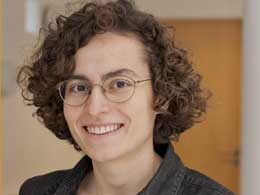Hello!

I am a researcher at the Inria Lyon centre with the Cophy Team .
My research activities are in the field of computational Neuroscience with the aim of deciphering the computational underpinnings of physiological, pathophysiological, and psychological processes, and improving the care of patients with neurological disorders. My scientific expertise is multiple timescale systems, synchronization, neural models, and neurophysiology, with a focus on complex neuronal dynamics from microscopic to macroscopic levels.
Current projects
Decoding cognitive impairments in patients with epilepsy
Epilepsy is a multi-causal neurological disorder affecting about 65 million of the population worldwide. Epilepsy is known for its clinical manifestations (seizures) and subclinical manifestations (interictal epileptic discharges - IEDs -). I am interested in how epileptic activity perturb the brain dynamics. I tackle these questions from two perspectives:
-
mathematical modeling: neural activity in the brain operates across multiple scales, encompassing both spatial (inter- and intra-areal) and temporal (slow and fast) dynamics. I develop multiscale in silico models to decipher the neural circuitry that mediates healthy and pathological neural activity. Currently, I am investigating the role of different neuron types in epileptic activty with Vincent Magloire (CRNL, Inserm, Lyon)
-
electrophysiology: one of the most recurrent questions in epilepsy neuro-pediatric clinics is whether IEDs, which are one of the reasons for cognitive impairments in children with epilepsy, should be treated or not. ECOFEC (Evolution of cognitive functions under epileptic activity in children) project combines signal processing and clinical data to track the biomarkers that can guide clinical practice. ECOFEC is in collaboration with Manon Boyer and Isabelle Merlet (LTSI, Inserm, Rennes), and Sylvie Napuri, Anna Michel and Constantin Gomes (Neuropediatry Department, CHU-Sud, Rennes). It is financed by the INCR (Institut des Neurosciences Cliniques de Rennes, 2024-2025).
-
Associative memory from multiple timescale point of view
The processing of sequences of items in memory is a fundamental issue for the brain to generate sequences of stimuli necessary for goal-directed behavior, language processing, thinking and decision making and more generally prediction. On the one hand, the systematic activation of the same sequence is required to repeat reliable behaviors; on the other hand, the generation of variable sequences is necessary for the creation of new behaviors in changing environment. How does a neural network react to changing enviroment and adapt itself dynamically? We are studying this question (and many others) in a minimal and mathematically tractable model with Pascal Chossat (MathNeuro Team, INRIA-UNS-CNRS, Nice), Frédéric Lavigne (BCL, Université Côte d'Azur, Nice) and Arnaud Rey (Laboratoire de Psychologie Cognitive, CNRS, Marseille). Our work is part of the HEBBAIN Project and supported by ANR (“HEBBIAN : Apprentissage hebbien de séquences”, 2023-2027).